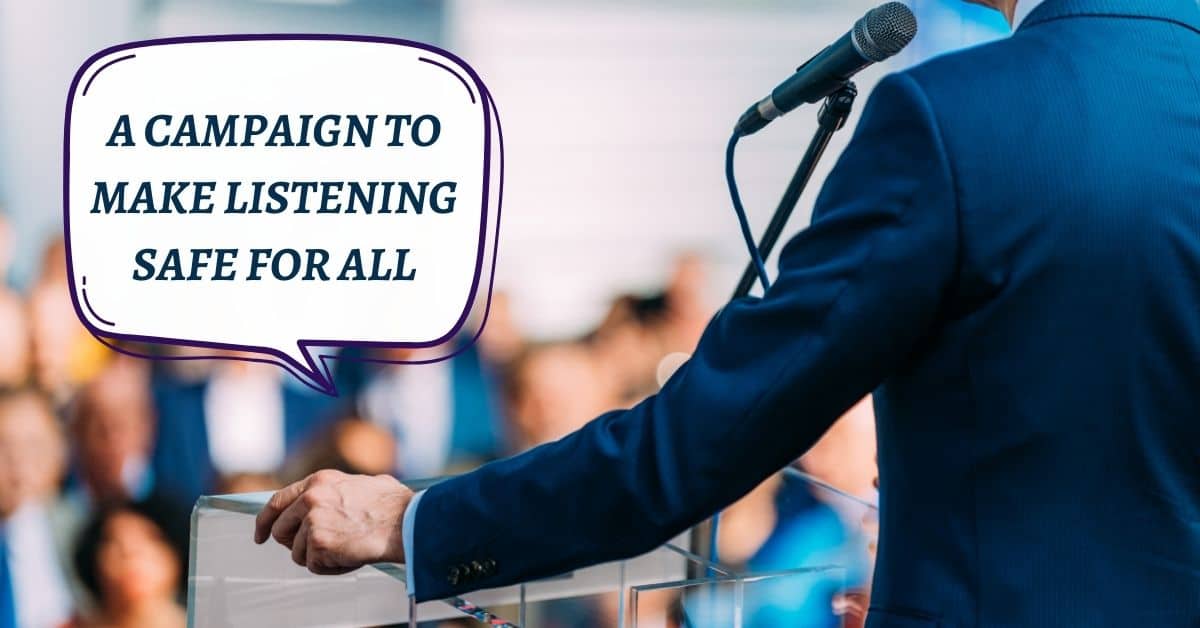Do you have unsafe listening practices? The World Health Organization (WHO) wants to make listening safe for all. They’re running a campaign to make listening safer for everyone. They’re working with researchers and audiologists to raise awareness about hearing loss, and help people learn more about the factors that can damage their hearing. The WHO is working towards a future where no one has hearing loss that could have been prevented.
Who Can Experience Hearing Loss?
Hearing loss affects everyone, regardless of age. Unsafe listening can hurt everyone’s ears. In fact, teenagers and young adults are the most at risk for hearing loss because they don’t know their habits are hurting their ears.
Teens often don’t think about their ears or their listening habits. The WHO has estimated that 1.1 billion teenagers are putting their hearing at risk without even realizing it. This hearing loss can be caused by loud concerts, and spending time in noisy bars and restaurants. Even listening to music with earbuds and turning up the volume too high can cause permanent hearing loss.
Adults also face hearing loss. This could be from leisure activities or from noisy workplaces. Construction workers, factory workers, airport staff, musicians, and law enforcement are just some of the professionals who face unsafe noise every day.
What is Noise Induced Hearing Loss?
Have you experienced hearing loss due to loud noises? This is called noise induced hearing loss. The WHO hopes their campaign will increase awareness around noise induced hearing loss, and make listening safe for all.
Noise induced hearing loss is caused by exposure to dangerously loud noises either in the environment around you or from your earbuds. These loud noises could be anything from the noise in the subway tunnel, emergency sirens on the street, a packed school hallway, or the construction sight on the corner.
Preventing Hearing Loss Through Safe Listening
Noise induced hearing loss is permanent, so the WHO is campaigning to make listening safer. This kind of hearing loss is preventable! Following safe listening guidelines can protect your hearing and prevent hearing loss.
The WHO has a number of guidelines for safer listening. The most important guideline is to wear hearing protection when sounds are dangerously loud. Any sounds over 85 decibels (dB) can damage your hearing. 85dB is approximately the sound of a loud window air conditioner, a power lawn mower, or a crowded restaurant. When sounds are 85 decibels or higher, you should wear hearing protection to safeguard your hearing.
A good rule of thumb is to try talking to the person next to you. If you have to shout to be heard, then it’s too loud and you risk damaging your hearing.
Wearing Hearing Protection
Whenever you’re in noise that’s louder than 85dB, wear hearing protection. Effective hearing protection includes foam or wax earplugs, earmuffs, and custom molded hearing protection. You should wear hearing protection both at work and during leisure activities. It’s a good idea to have earplugs with you at all times. You can keep a pair of foam earplugs in your bag or pocket, and put them in whenever sounds are dangerously loud.
Turn Down the Volume
The WHO is also advocating for safer listening practices when you listen to music through your earbuds or headphones. If you turn up the volume all the way, sounds can reach 100dB or more! You could be damaging your hearing every time you listen to music.
The best thing you can do for your ears is to turn down the volume. We recommend that you never turn up the volume higher than 60%, and take a break from listening every 60 minutes. Have you been turning up the volume to drown out background noise? You can get a pair of noise cancelling earbuds or headphones so that you can enjoy your music without turning up the volume.
Seeking Treatment for Hearing Loss
Are you ready to do the right thing for your ears? Whether you’re 20 or 80, it’s important to practice safe listening. If you’ve experienced changes in your hearing, the first step to take is to schedule a hearing test. Contact us today! We’ll answer your questions about safe listening and provide you with expert comprehensive hearing health services.

